NSE Soil Mechanics laboratory in Bandung is equipped with KAN (Komite Akreditasi Nasional) calibrated certified equipment, holds the motto “Precision for Perfection” to provide an accurate, correct and high-quality data in every project that we handle.
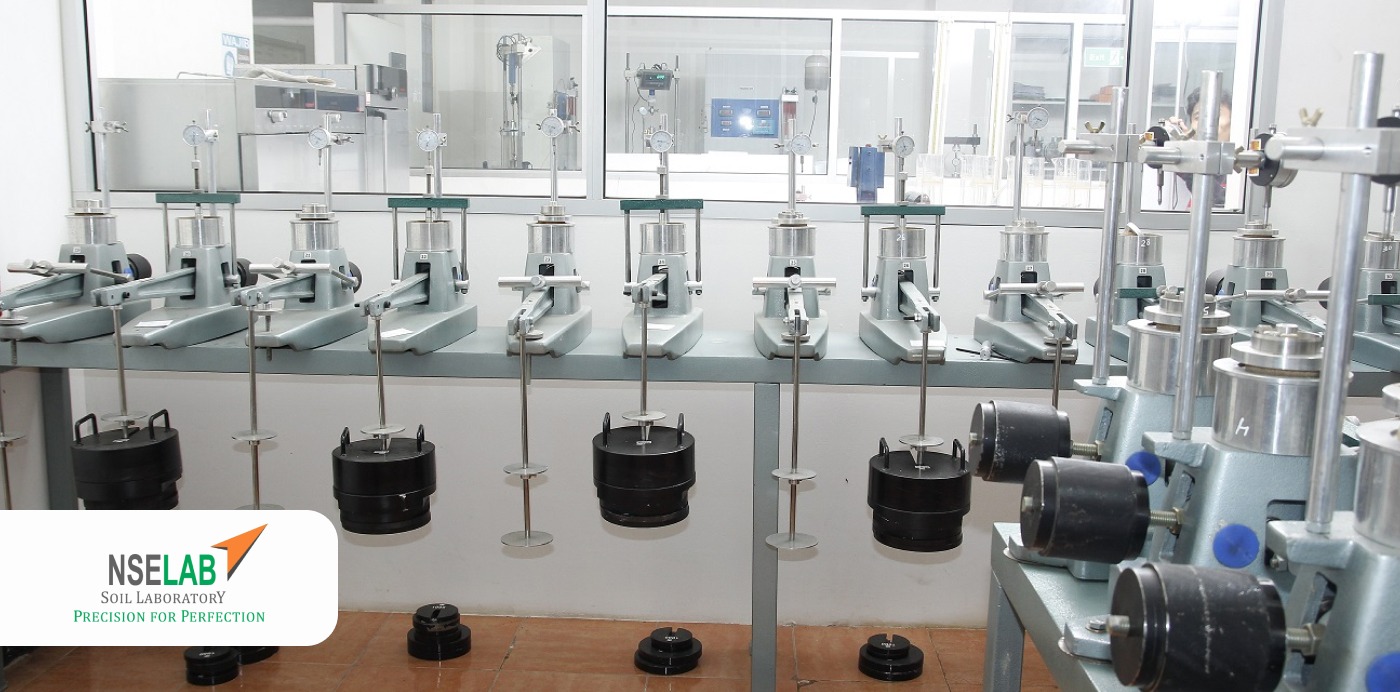
Consolidation Test Unit
The test is performed to determine the magnitude and rate of volumetric strain that a laterally confined soil specimen undergoes when subjected to different vertical pressures. This data is useful in determining the compression index, the swelling index and the preconsolidation pressure of the soil.
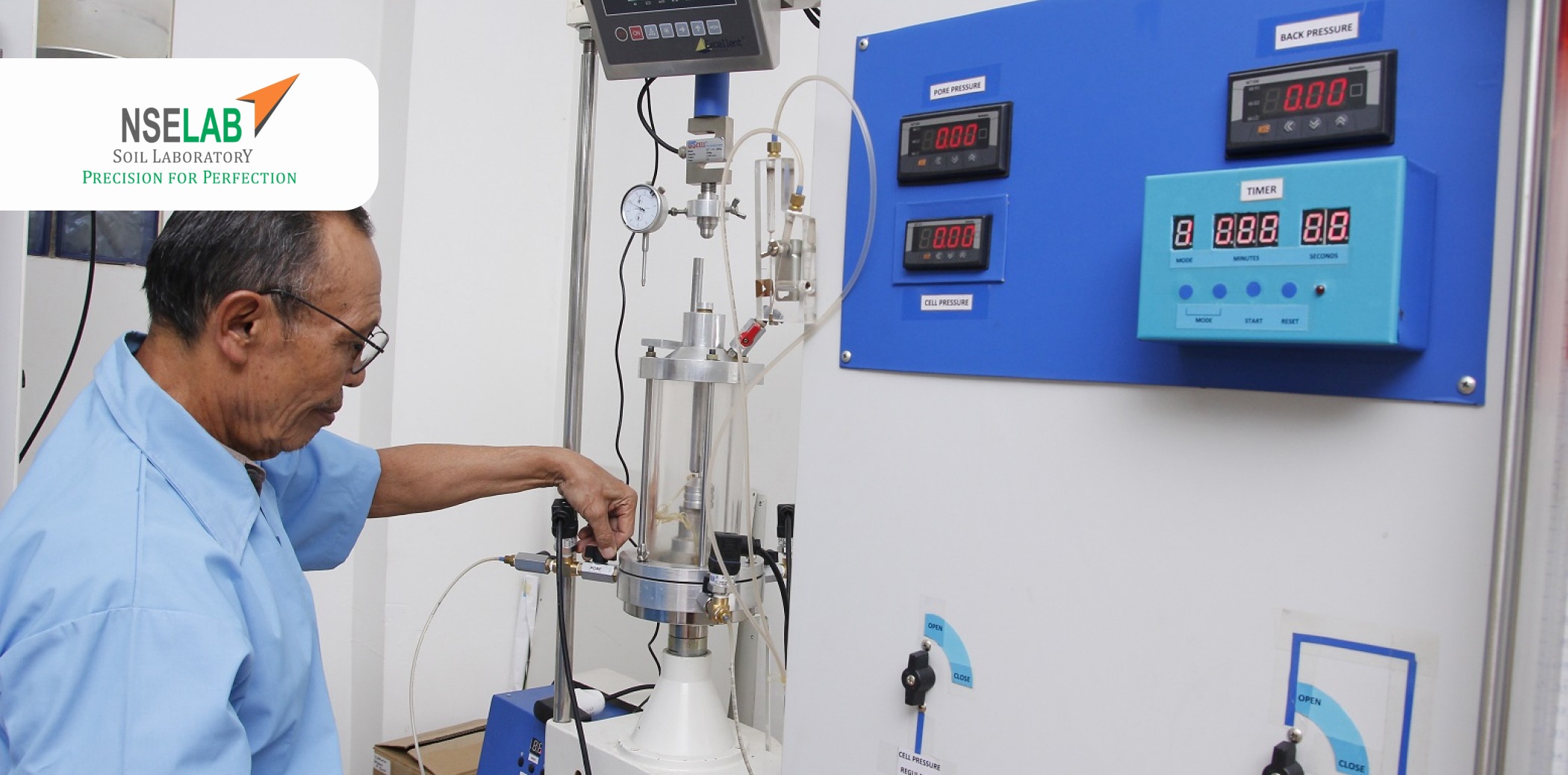
Triaxial Test Unit
The triaxial test is a common laboratory testing method widely used for obtaining shear strength parameters for a variety of soil types under drained or undrained condition.
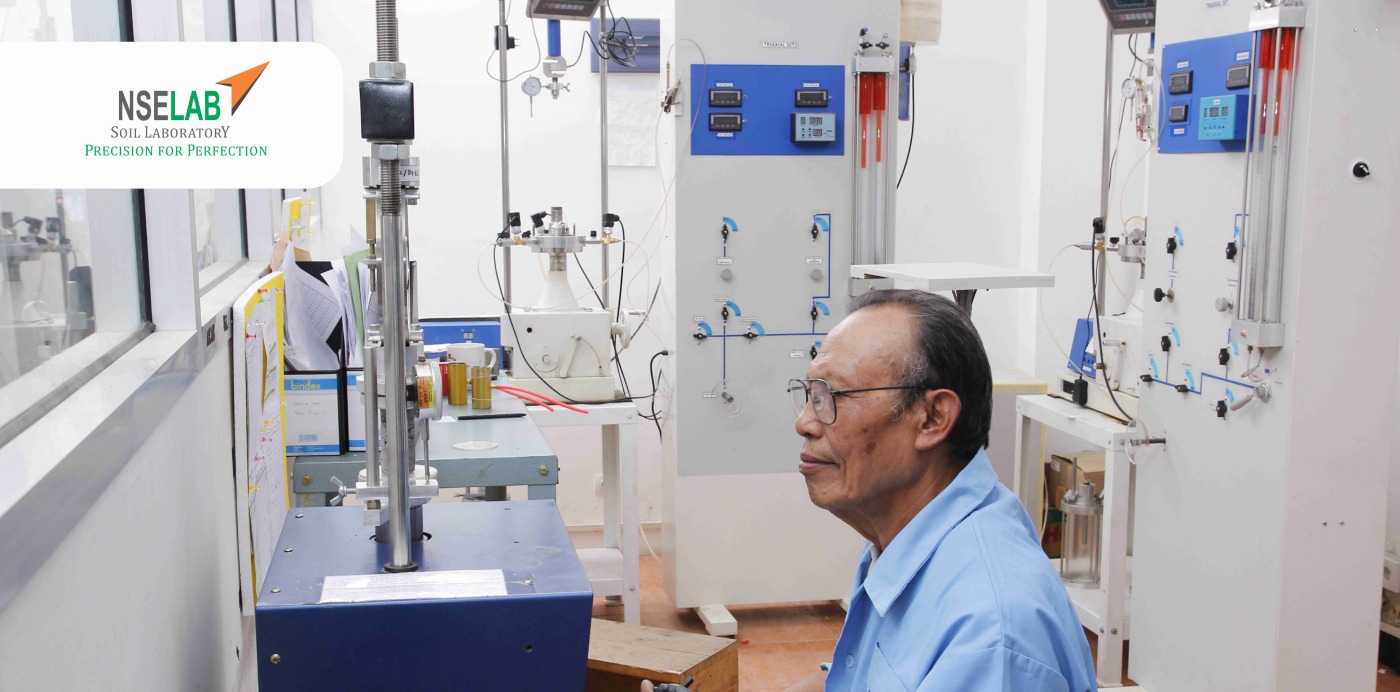
Unconfined Compression
The primary purpose of this test is to determine the unconfined compressive strength, which is then used to calculate the unconsolidated undrained shear strength of the clay under unconfined conditions.
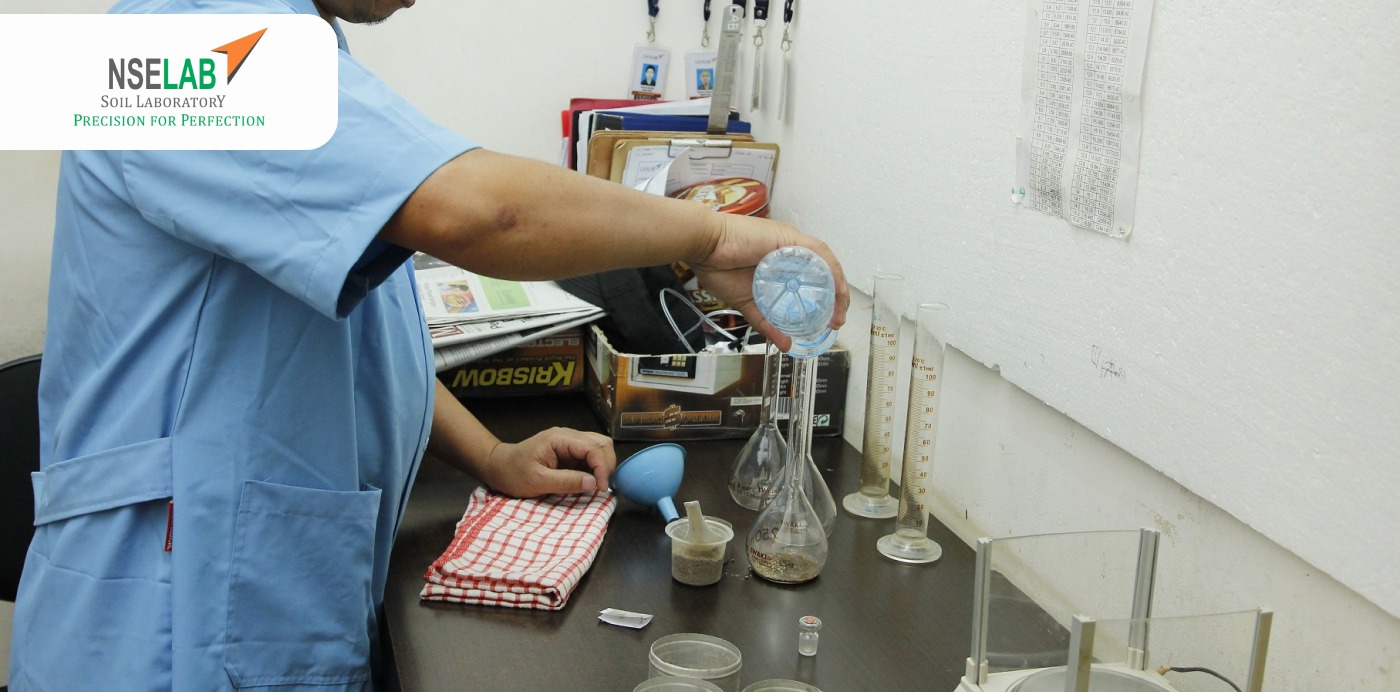
Specific Gravity
Specific gravity is the ratio of the density of a substance to the density (mass of the same unit volume) of a reference substance. Apparent specific gravity is the ratio of the weight of a volume of the substance to the weight of an equal volume of the reference substance.
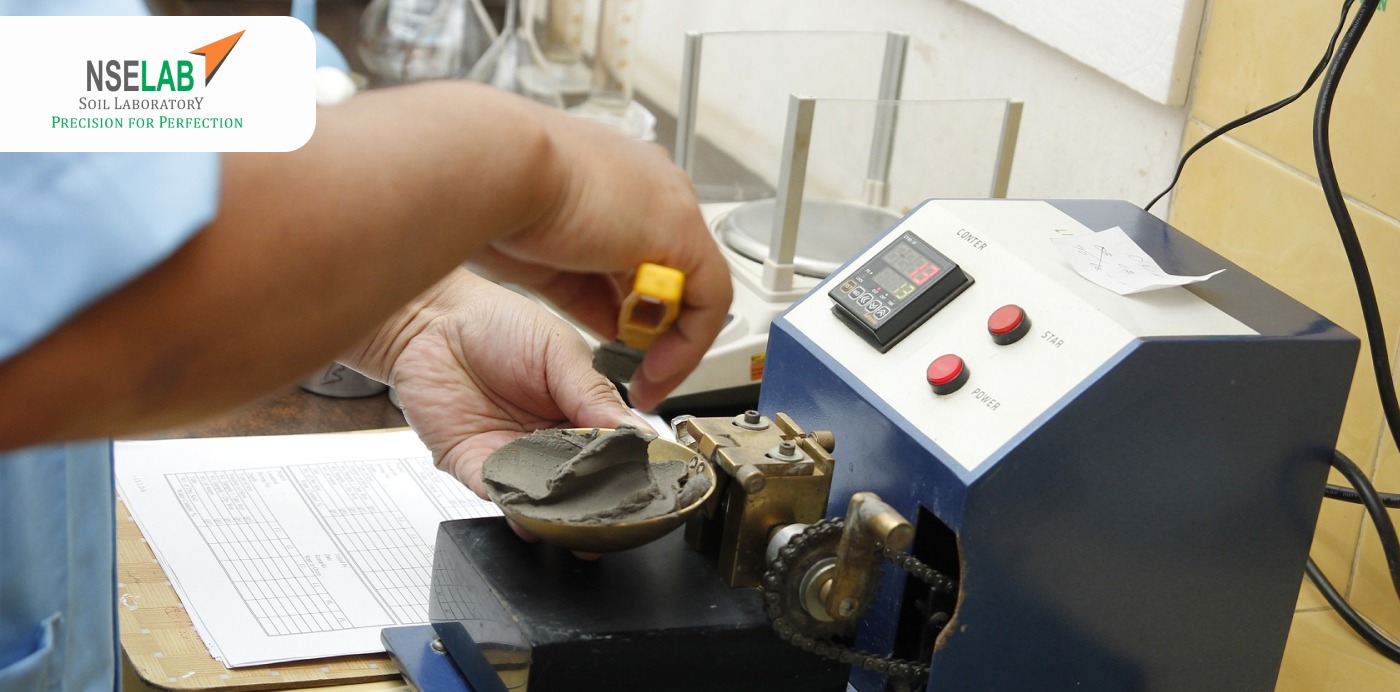
Atterberg Limit
The test is performed to determine the plastic and liquid limits of a fine-grained soil. The Liquid limit is arbitrarily defined as the water content, in percent, at which a part of soil in a standard cup and cut by a groove of standard dimensions will flow together at the base of the groove.
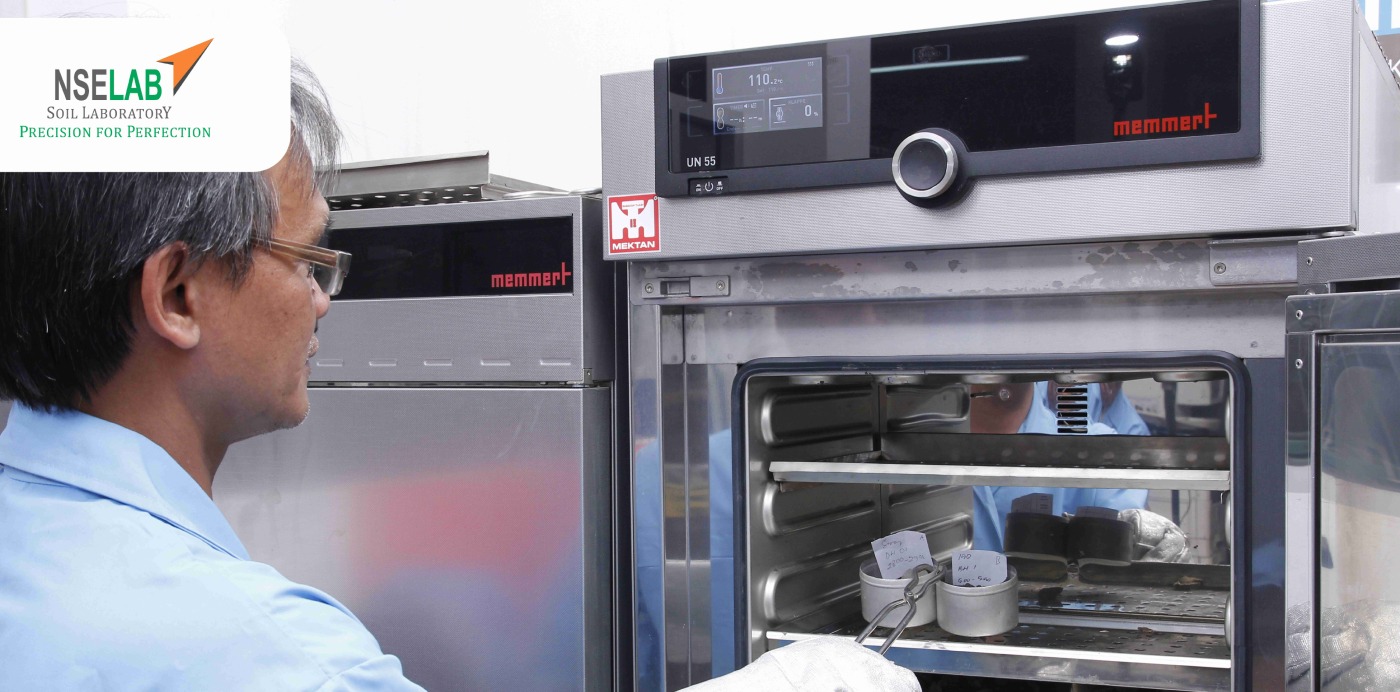
Water Content
Water content is defined as the ratio of the weight of water to the weight of solids in a given volume of soils. Oven is really needed to obtain this property.
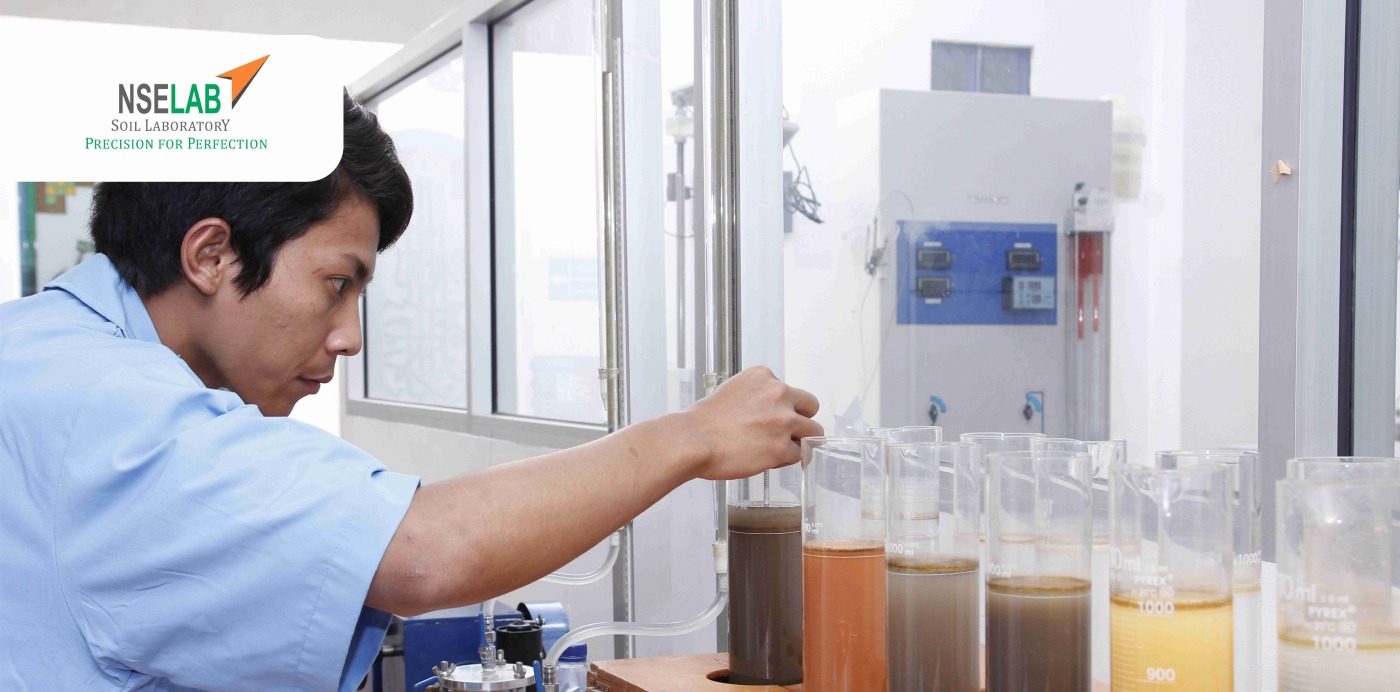
Hydrometry
This testing is known as hydrometer analysis. The analysis is based on the principle of sedimentation of soil grains in water. when a soil specimen is dispersed in water, the particles settle at different velocities, depending on their shape, size, and weight, and the viscocity of the water.
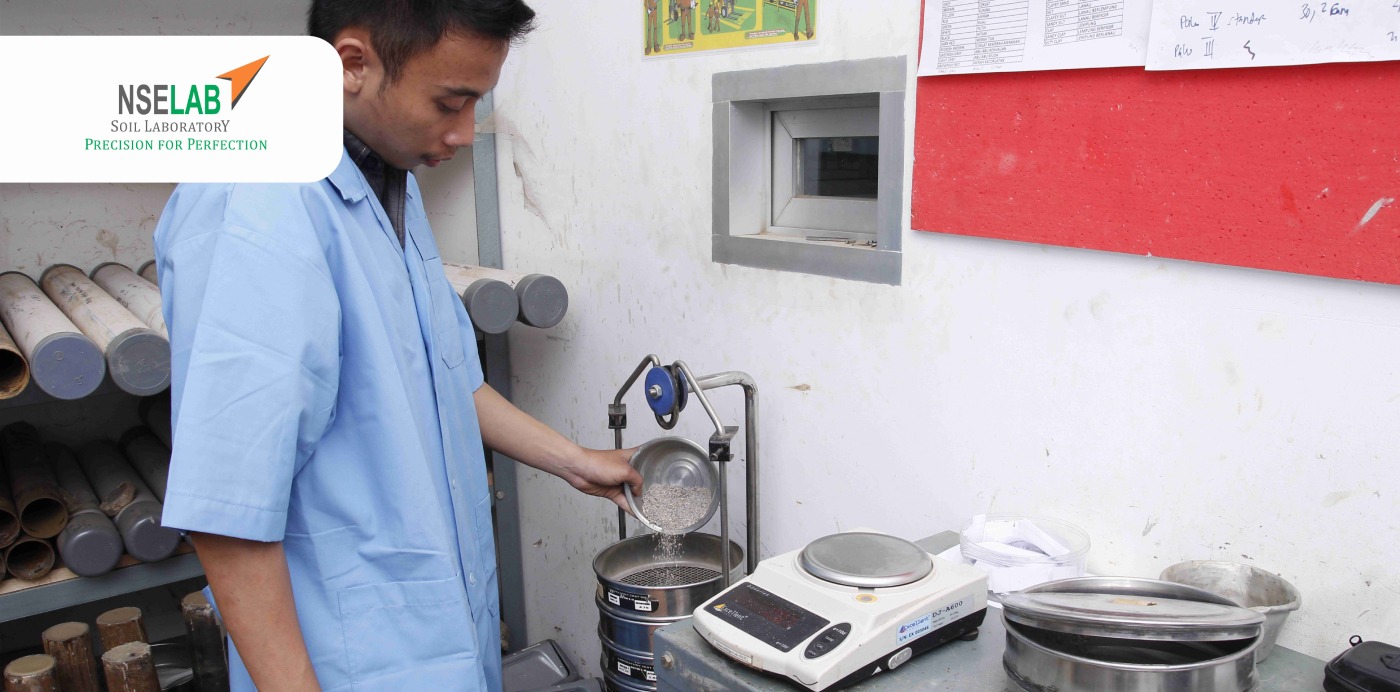
Sieve Analysis
This analysis consists of shaking the soil sample through a set of sieves that have progressively smaller openings. The smallest-size sieve that should be used is the No. 200 sieve.
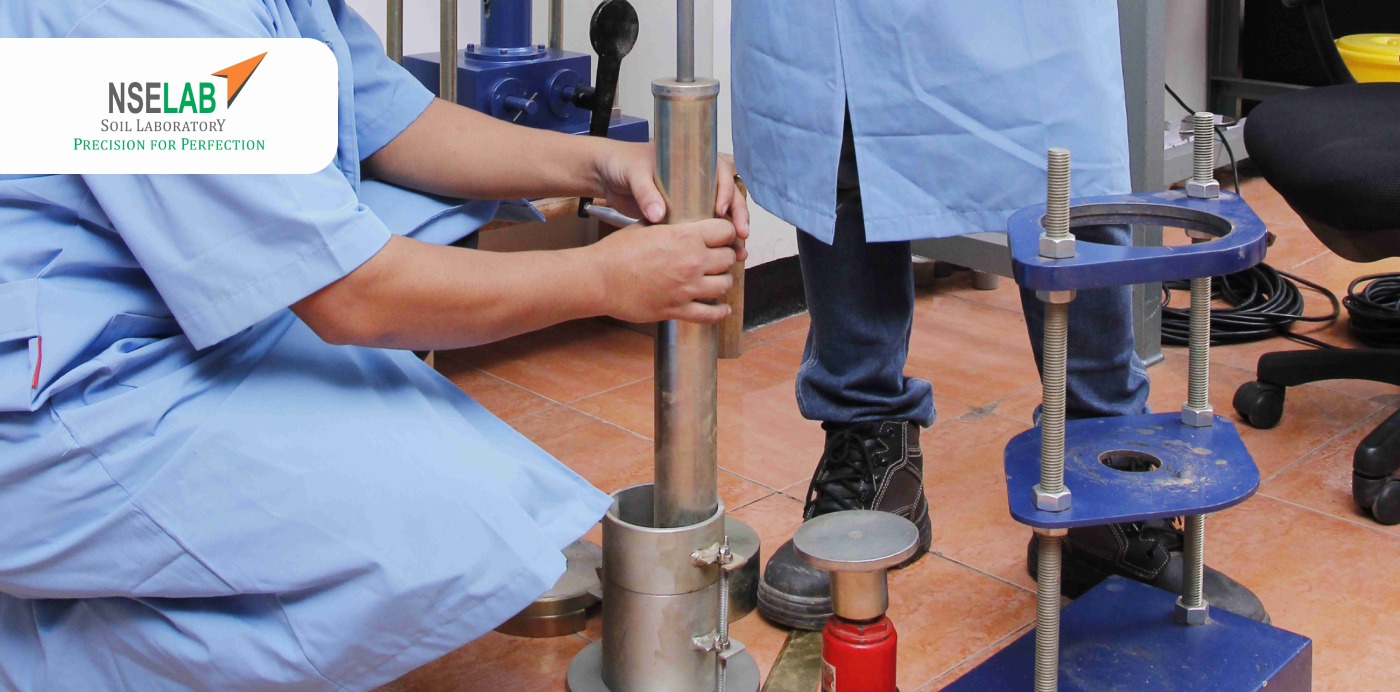
Compaction
In general, compaction is the densification of soil by removal of air requiring mechanical energy. The degree of compaction of a soil mass is measured in term of its dry unit weight. There are two types of compaction test in a lab, they are Standard Proctor test and Modified Proctor test.
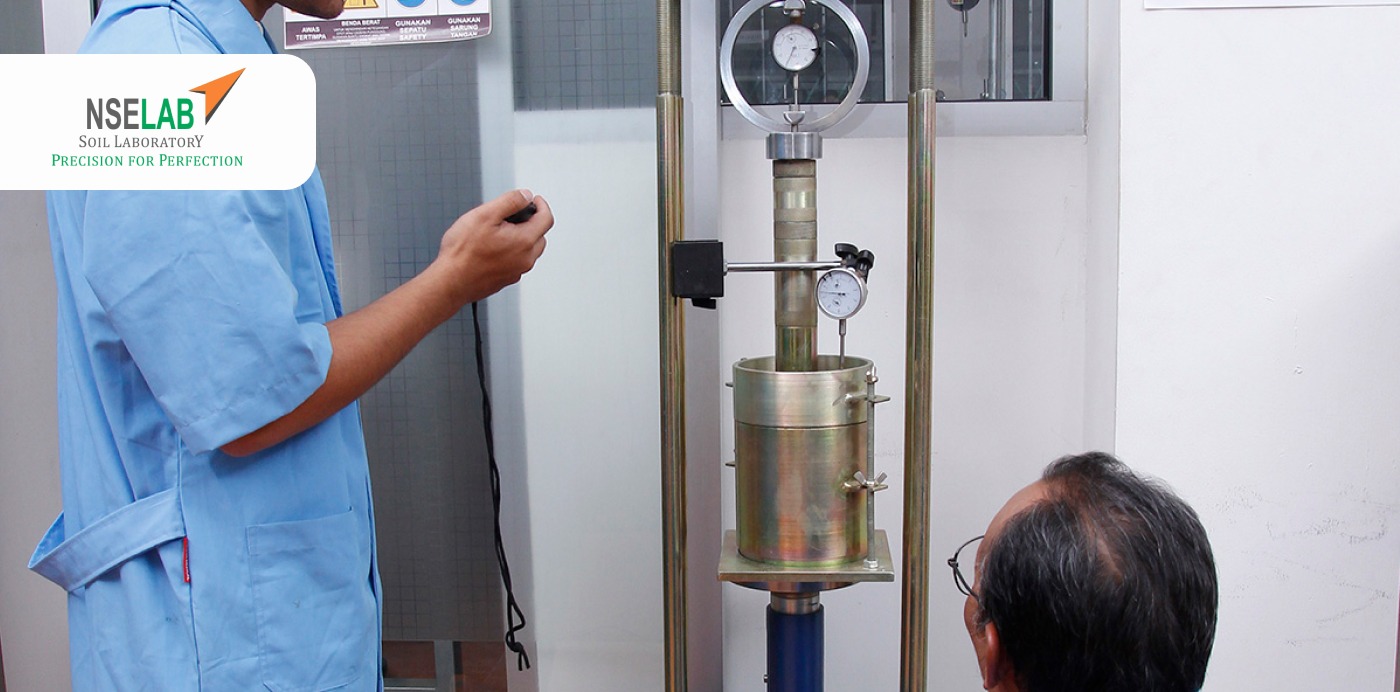
CBR
The California Bearing Ratio (CBR) test is a simple strength test that compares the bearing capacity of a material with that of a well-graded crushed stone (thus, a high quality crushed stone material should have a CBR 100%). It is primarily intended for, but not limited to, evaluating the strength of cohesive materials having maximum particle sizes less than 19 mm (0.75 in).
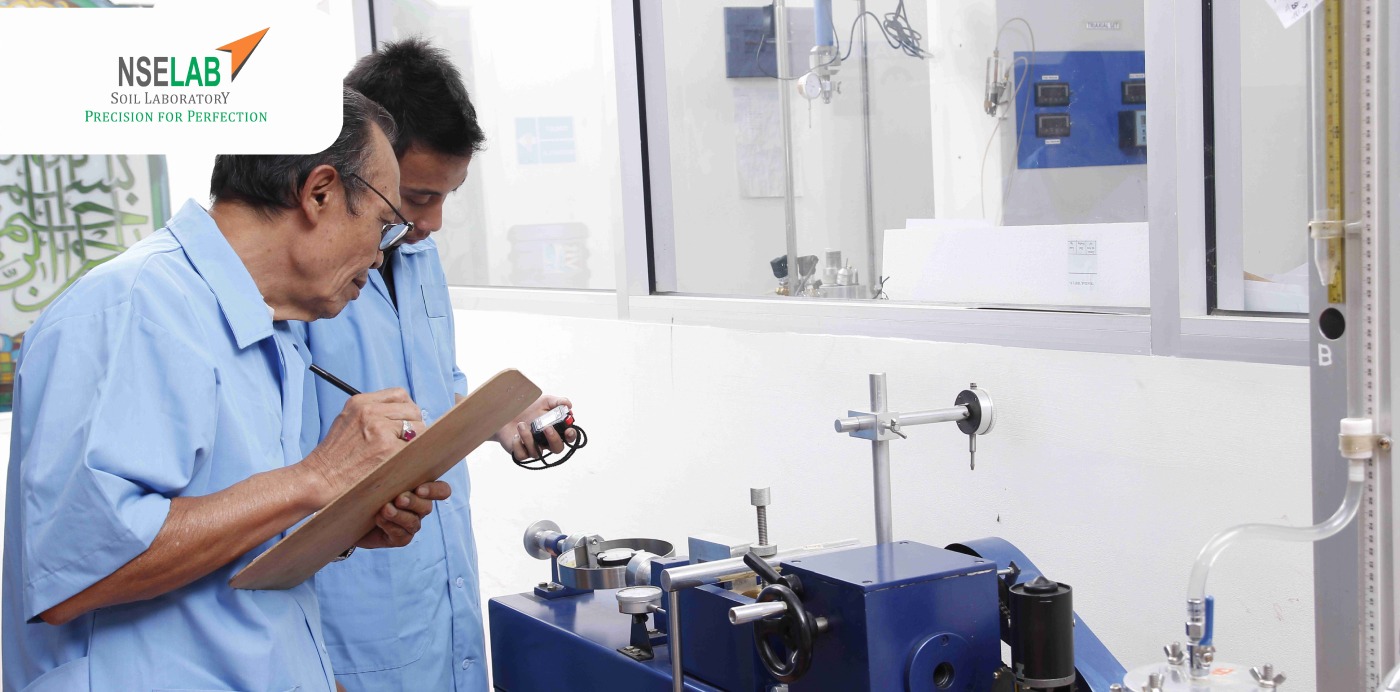
Direct Shear
A direct shear test is a laboratory or field test used to measure the shear strength of soil material. Several specimens are tested at varying confining stresses. The upper ring is then pulled laterally until the sample fails, or through a specified strain.
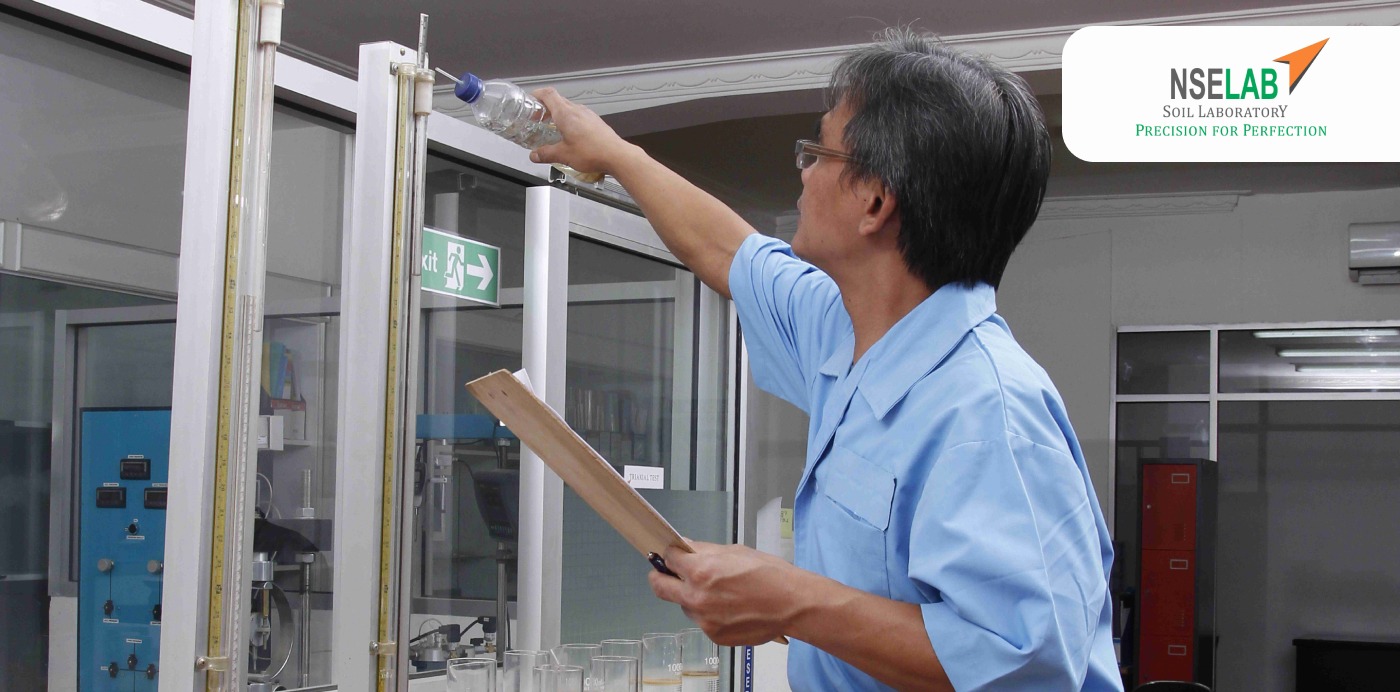
Permeability
The constant head permeability test is a common laboratory testing method used to determine the permeability of soils. The test involves flow of water through a column of cylindrical soil sample under the constant pressure difference.